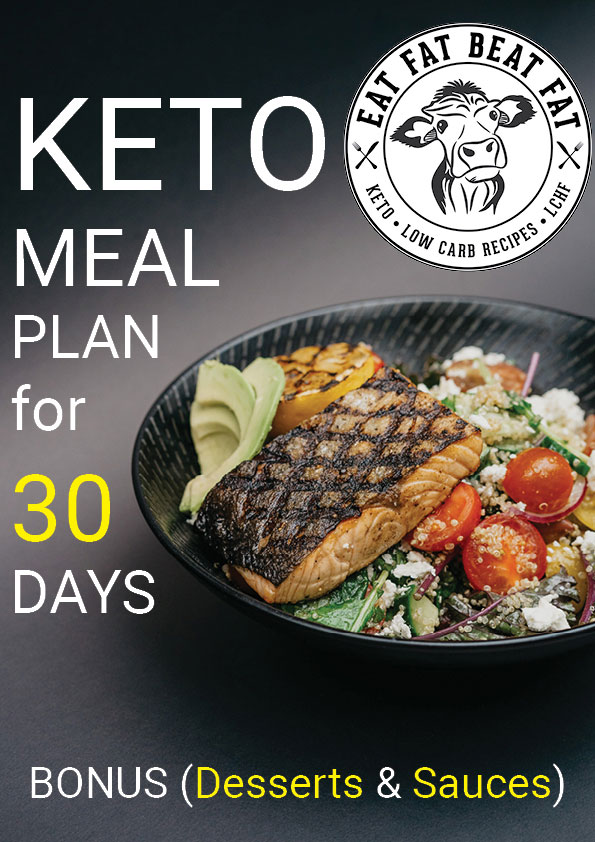How often do you find yourself thinking, “I’m not that hungry, but I have to eat this or [insert reason: I won’t stay in ketosis, I won’t make it until my next meal, my muscles won’t grow]” as you are halfway through a meal?
Your body is attempting to achieve its happy zone, where it receives the appropriate amount of food for its needs, by telling you that you are not hungry. You are working against your body in the worst way conceivable when you force yourself to finish your food.
In light of this, weighing and measuring your meals is a complete waste of time. Your body can sense when enough is enough. Rely on your body.
FIRM IN YOURSELF
Put an end to the “rules” once you’ve been eating keto for a time and come up with your own. You’ll be familiar with the sensation of being in ketosis once you’ve been fat-adapted. Playtime has come. You already feel great after eating this manner, but is there any way to feel even better?
Include positive motion.
Do you detest working out? Consider the movement that makes you happy and practice more of it. Why do you do it if you detest every second of it? because you believe you ought to? Is that sufficient justification?
START USING SELF-CARE TECHNIQUES
Make a list of the activities that make you happy and rate them according to how much time they take, from those that take a lot of time to those that only take a few minutes. Start with one brief exercise per week and gradually increase it to at least one every day. Making tea before the workday starts, going for a stroll in the late afternoon, and unwinding with a bath before bed are all parts of my personal self-care routine. I spend roughly two hours every day on self-care overall, but it didn’t begin that way. I used to count myself lucky if I had five minutes to myself to accomplish the things that made me happy. I now realize that investing in myself pays off in the form of increased self-respect, self-awareness, and my favorite self-confidence.
IDENTIFY YOUR GOAL
Anyone can experience this: despite our best efforts, we end ourselves getting back on the diet bandwagon, tracking our caloric intake, and berating ourselves for eating that extra piece of chicken. When this occurs, I decide what my purpose is.
My goal in quitting dieting was to live a more liberated, impulsive life and let the present moment govern me instead of my anxieties or regrets. I’m unable to live the life I want to live when I start counting calories or get back on the tight dieting bandwagon. So, whenever I find myself reverting to those old, destructive habits, I remind myself that they prevent me from living the life I want.
To remind yourself of what’s essential to you (the reason you’re saying no to sugar and yes to that afternoon stroll) when you begin to alter your eating habits, you may need to re-connect with your purpose each day. It gets simpler to live out your mission without having to continually remind yourself of it as you continue to practice.
You could ask yourself the following questions to help you determine your purpose:
- Why did you decide to read this article?
- What about consuming extra fat appeals to you?
- How would you describe a happy and healthy life?
- When you’re content and in good health, how do your thoughts and behavior change?
- What quick tasks that will help you stay connected to and focused on your purpose can you commit to undertaking every day?
I hope you can now understand how beneficial this eating style can be for so much more than just your physical health. Yes, it’s excellent for physical well-being, weight loss, and all that jazz, but it also puts you in a great position to genuinely enjoy the journey and feel more balanced in your life.
You have control over how your body is feeling.
Common medical procedures are unable to treat widespread chronic health issues. In the United States alone, 1.6 million people are given a cancer diagnosis each year, 3 million suffer from neurological illnesses, 26 million have diabetes, and 5 million women have polycystic ovary syndrome. People who are interested in their health from all walks of life are starting to understand that the way we are living and eating is ineffective.
A life-altering diagnosis of Alzheimer’s, Crohn’s, diabetes, cancer, multiple sclerosis, or a similar condition has affected so many of us personally or has been experienced by someone we love. The diagnosis itself is undoubtedly frightening. But what really worries me is how resistant media outlets and healthcare institutions are to changing the subject and rethinking their strategy for treating and preventing sickness. Instead of using a modern strategy that takes into account the most recent research on diet and disease, they frequently use outmoded treatments.
In 2010, as my father faced chemotherapy, I realized this for myself. Patients received tea with packets of sugar and store-bought biscuits after their daily treatments. This sugary snack was intended to give you more energy. However, the hospital overlooked the fact that cancer thrives on sugar, which is another impact of sugar.
Or think of my grandfather’s Alzheimer’s journey. He progressed quickly from mild dementia to tragic stage three Alzheimer’s disease before passing away. I’m certain that the numerous bowls of candy and other sweet snacks that were placed around his nursing home room contributed to the astonishingly rapid onset of his Alzheimer’s. Despite the fact that Alzheimer’s has been dubbed “type 3 diabetes” for good cause, high-fat diets, particularly MCT oil, had not yet been discovered for their health benefits.
Education about the advantages of eating fat could have enhanced the experiences of both my father and my grandfather. Maybe you’ve seen, heard, or had similar experiences before.
We need to develop self-care skills, and education is the key to doing so. You don’t have to train to be a nutritionist, but you can experiment with numerous strategies in order to find an eating pattern that is suitable for your needs, your body, your health, and your lifestyle. And should problems emerge, you’ll be in a great position to know what changes to do to solve them and where to go for support.
I’m not telling you this to make you change, but to start a discussion about being open to new concepts about how to support your body, both to address any current health issues you may be having and to prevent future health issues. You may be interested in taking ownership of your body if you read this blog, in my opinion. Our bodies are the most valuable possessions we have, and by educating ourselves with knowledge from a variety of sources, we can better manage whatever life throws at us.






